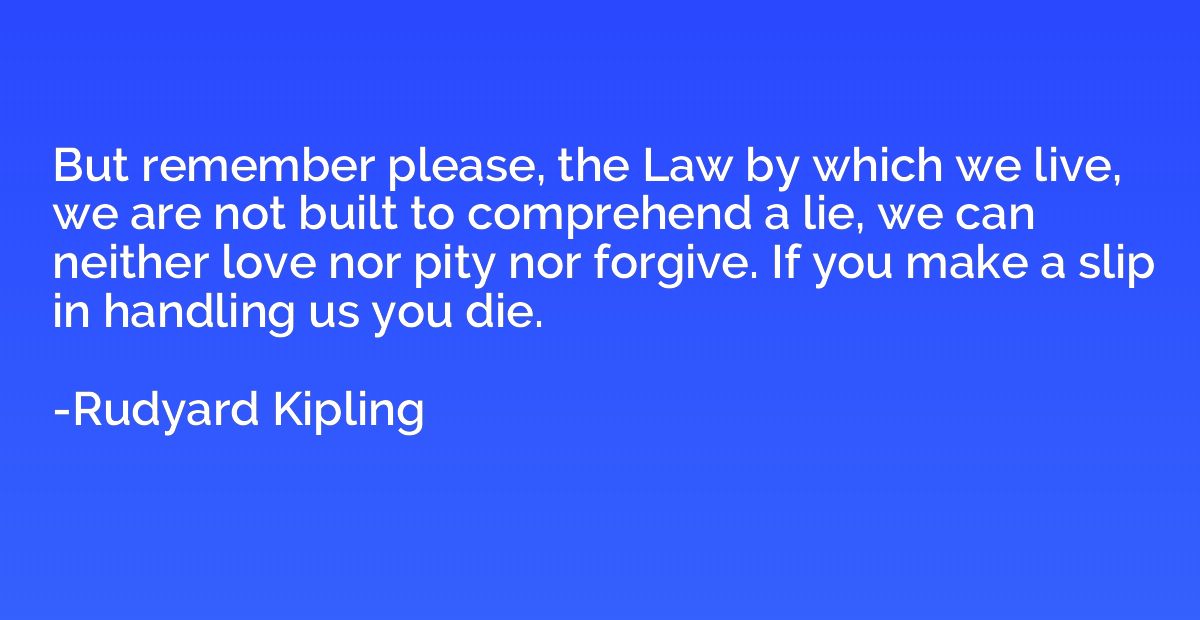Quote by Rudyard Kipling
But remember please, the Law by which we live, we are not built to comprehend a lie, we can neither love nor pity nor forgive. If you make a slip in handling us you die.

Summary
This quote suggests that there exists a fundamental law, or nature, that governs our existence. According to this law, humans are not designed to understand falsehoods or deceit. It implies that our innate capacities such as love, pity, and forgiveness cannot apply to dishonesty. Additionally, the quote warns that if one mishandles or manipulates this inherent truth-seeking aspect of human nature, they will face dire consequences.














